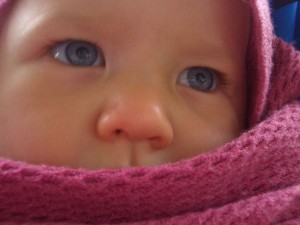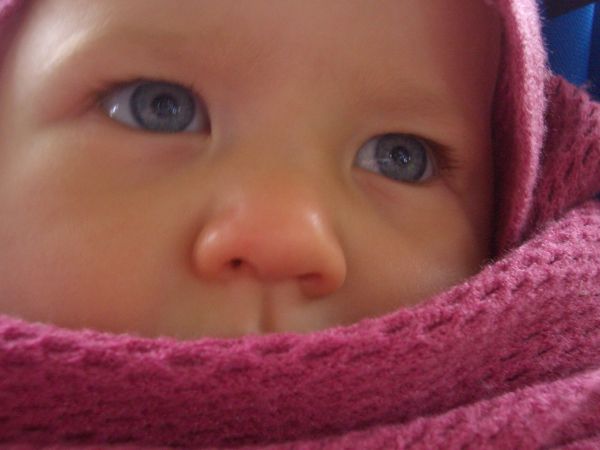
Babies are especially prone to common cold, one major reason being that they are usually around children of older ages who do not wash their hands properly. Usually babies incur up to seven colds during the first year of their life because their immune systems are weaker than older children or adults.
Treatment primarily involves relieving symptoms of common colds by offering plenty of fluids and making sure the air around the baby is moist. If your infant s very young and has a cold, it is important that you see your doctor as soon as possible because he or she may be at greater risk of developing complications such as pneumonia or croup.
Signs and symptoms
Initial signs and symptoms often include:
- Nasal congestion and runny nose
- Clear nasal discharge, which becomes thicker and changes color such as yellow or green
Other symptoms may include:
- Coughing
- Sneezing
- Low grade fever of around 100.4 F or 38 C
- Irritability
- Sleeping difficulty
- Decreased appetite
When to seek medical attention
It should take some time for your baby to show some improvement with the cold. If the baby shows no symptoms, the cold should subside within a week.
For younger babies of age 2 to 3 months, it is important that you see your doctor as soon as you notice any symptoms. Newborns are at greater risk of developing further complications as a result of common cold such as pneumonia and croup. Moreover, symptoms such as nasal congestion, stuffy nose and fever can lead to a lot of discomfort for your baby and make it difficult for the child to nurse – this may cause dehydration.
As your child gets older, you will be guided by your doctor as to when you may need to seek medical help when your child has to cold and what possible home treatments can be done to improve symptoms.
Common colds in babies are more of a nuisance, rather than a cause for alarm but it is still important that you take the symptoms seriously. For children of 3 months or above, see your doctor if:
- Your child is not wetting his or her diapers as much as before
- Your child has ear pain
- Your child has a high temperature – above 102 F or 38.9 C
- Your child coughs for more than a week
- Your child has red eyes or has yellow discharge from the eyes
- Your child has thick, green yellow discharge from the nose for two weeks or more
- Your child seems to be showing signs and symptoms that may worry you
Seek immediate medical attention if your child:
- Does not accept fluids and refuses to nurse
- Coughs so hard that it causes a change in skin color or causes vomiting
- Coughs up sputum with traces of blood
- Is experiencing breathing difficulty or is blue around the mouth or lips (cyanosis)
Treatment
There is no cure for common colds and antibiotics are not effective as they cannot work against the viruses that cause colds. It is advisable that you consider home treatment such as offering plenty of fluids to your child, preventing nasal discomfort with the use of saline drops, suctioning mucus and making sure the air is humid. Make sure you see a doctor if your baby is 3 months or younger and has a common cold.
It is best if you avoid over-the-counter medication if your child is suffering from a cold. You can use fever-reducing drugs for children — making sure you properly follow dosage instructions — if fever is causing too much discomfort for your child. Avoid cough and cold medications as they are not safe for infants and young children. Make sure you do not give acetaminophen for infants under 3 months of age and give older children the right dosage carefully. Do NOT give aspirin to your baby and young children and even teenagers may be at risk of developing Reye’s syndrome if given this medication. If your child is vomiting continuously or is dehydrated, do not give any medication. Consult your doctor if you have any questions about medication and dosages.

